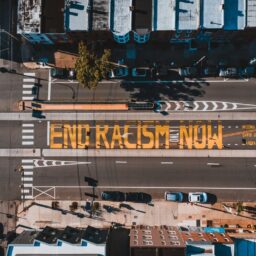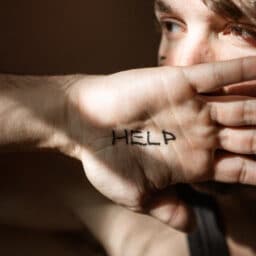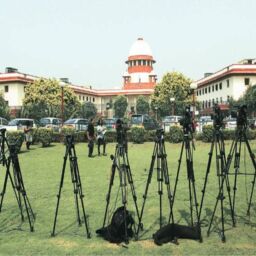Introduction
In India, under trial prisoners makeup approx. 70% of the prisoner population. All these under trial prisoners are innocent in the eyes of the law. According to the information available on the National Judicial Data Grid (NJDG), a total of 43.90 million cases are pending in court across the country.[1] The condition of these prisoners is very pathetic as most of them are there for petty crimes like theft, etc. or simply based on the suspension of crime and false complaints. They have to live in precarious conditions in prison. Most of these prisoners are poor and illiterate and do not know their legal rights. In some cases, hearings continue for years. Sometimes, if proven guilty, they exceed the time of punishment or, in the case of proven innocent, they have already wasted crucial years of their lives in prison. All cases with long drawn under trial cases in which the person is not convicted or even charged and acquitted are known as Wrongful incarceration.
For instance, in March 2021, a man named Vishnu Tiwari was acquitted from prison after twenty years on false charges of rape. In this case, the trial was going on for around twenty years and in the end, when he was proved innocent, except his younger brother, no one remained in the family. Unfortunately, he was punished for a crime he never committed. In another instance, in 1982, a sample of turmeric was collected from Prem Chand’s shop and later it was found to be adulterated with four living mealworms and two live weevils.[2] He was tried, but in 1995, 13 years later, he was acquitted of food adulterating charges. It must have been a very difficult case because 14 years later, he was convicted by a high court. Then the Supreme Court took 11 years to acquit in 2020. Prem Chand spent 38 years of his life in court.
Problems Faced During Incarceration
Currently, in prison, the problem faced by inmates is overcrowding, underfunding, and understaffing. As a matter of fact, under trial, prisoners are considered innocent until proven guilty. But sub-human living conditions, like three times more prisoners residing in a prison cell, poor hygiene, violent clashes between the inmates and jail authorities, lead to psychological and physical torture of prisoners. The chances of spreading communicable diseases like Tuberculosis, HIV, Syphilis, etc among inmates may increase in comparison to the general population. In the present situation, where the covid 19 created havoc all around the world. Among prisoners, the fear of contracting the disease is much greater because of their inability to follow the protocols for preventing the virus. In prison, abuse is also seen in many forms. Women prisoners are especially vulnerable to sexual abuse. Other types of abuse include harassment and torture. Prison violence is also common in prisons. There is no separate institution for convicted prisoners and undertrial prisoners. There are chances that by residing with convicts, they may also adopt the thought process like them.
Problems faced in post-incarceration
In India, we have a principle that ten accused people can be released, but one innocent person should never be punished. In general, people who are innocent while in jail endure more psychological hardship and mental health consequences than convicted prisoners, including post-traumatic stress disorder, despair, hopelessness, relationship difficulties, and so on.
People who are exonerated find it very difficult to reintegrate into society as they face issues of unemployment, ostracization, discrimination, damage to reputation etc.[3] The person has to face the social stigma attached to the prison. Generally, in society, people have the notion that someone who is in jail at some or other point in time is a culprit. Biasness will come against that person. Though the court acquitted, the person still had to face the consequences. Due to trust issues, finding work has become harder. They began to be ignored by their peers. Self-shame, guilt, and blame are all emotions linked to self-stigma. They felt dissatisfied and helpless because they had done nothing wrong, yet had to deal with the consequences. All of this has a negative impact on one’s health, especially mental health. People are usually unable to return to their former roles and start avoiding social activities and gatherings.
The reason for a large number of undertrial
According to a report released by the ministry of home affairs, Prison Statistics India (PSI) 2018, since 2000, the prisoner population across India has gone up by 71%.[4] The wide variety of powers given to police to arrest a person under the Unlawful Activities (Prevention) Act (UAPA), the National Security Act (NSA) and the Public Safety Act (PSA). There are many cases reported where police misuse their power under the act. Some people are also arrested in cases where they have already supported the police in their investigation. This is an unnecessary increase in the number of prisoners. The rate of piling up cases thus increased at a faster rate.
The poor financial condition and lack of legal awareness are two of the main reasons for the staggering rise in undertrial prisoners. The right to bail is the right of a prisoner in the case of a bailable offence, but some people do not have information regarding it.[5] Some of them are locked away for long periods in prison for petty offences but are unable to defend themselves. Currently, the pandemic is making the situation worse. Due to the pandemic, physical courts were shifted to online and started hearing urgent matters only. So the hearing of a number of cases per day decreases the chance of hearing the cases.
Conclusion
The questions which arise after seeing the precarious situation of these prisoners are many. Is monetary compensation for mental trauma or discomfort supplied to these people a substitute for their suffering? Certainly not.[6] But it certainly helps in some ways to improve their trajectory. In some cases, the Supreme Court held that compensation could be awarded to these prisoners as their crucial years vanished because of delays in justice delivery. Their fundamental rights are violated under Article 21 of the constitution. However, it is painful that, more often than not, even monetary compensation is not paid. In India, there is no statutory or legal scheme to provide compensation in the case of wrongful incarceration. So, we have to develop the same, to help these innocent people. There is also a need to run an awareness campaign to ensure legal aid in order to help save the prisoners’ precious years of life.
Author(s) Name: Kumud Tomar (Dr. B.R. Ambedkar National Law University, Sonipat)
References:
[1] ‘Explained: Intellectual Property Waiver For Covid-19 Vaccines’ (The Indian Express, 2021) <https://indianexpress.com/article/explained/explained-ip-waiver-for-covid-vaccines-7304992/> accessed 27 August 2021
[2] Id
[3] Angelie Alviar, ‘Miscarriages Of Justice: The Psychological Consequences’ (Journals.indexcopernicus.com, 2020) <https://journals.indexcopernicus.com/api/file/viewByFileId/1073186.pdf> accessed 2 September 2021
[4] ‘Analysis| India’S Prison System Needs Urgent Reform’ (Hindustan Times, 2020) <https://www.hindustantimes.com/analysis/analysis-india-s-prison-system-needs-urgent-reform/story-HYecwGnYLtYqCZqfV3rycL.html> accessed 3 September 2021
[5] Viyomesh Budholia, ‘THE RIGHTS OF UNDERTRIAL: A CRITICAL STUDY’ (Ijrar.com, 2018) <http://ijrar.com/upload_issue/ijrar_issue_867.pdf> accessed 1 September 2021
[6] Madan B. Lokur, ‘What Is Stopping Our Justice System From Tackling The Cases Pending Before Courts?’ (The Wire, 2021) <https://thewire.in/law/india-judiciary-pending-cases-supreme-court> accessed 3 September 2021
















